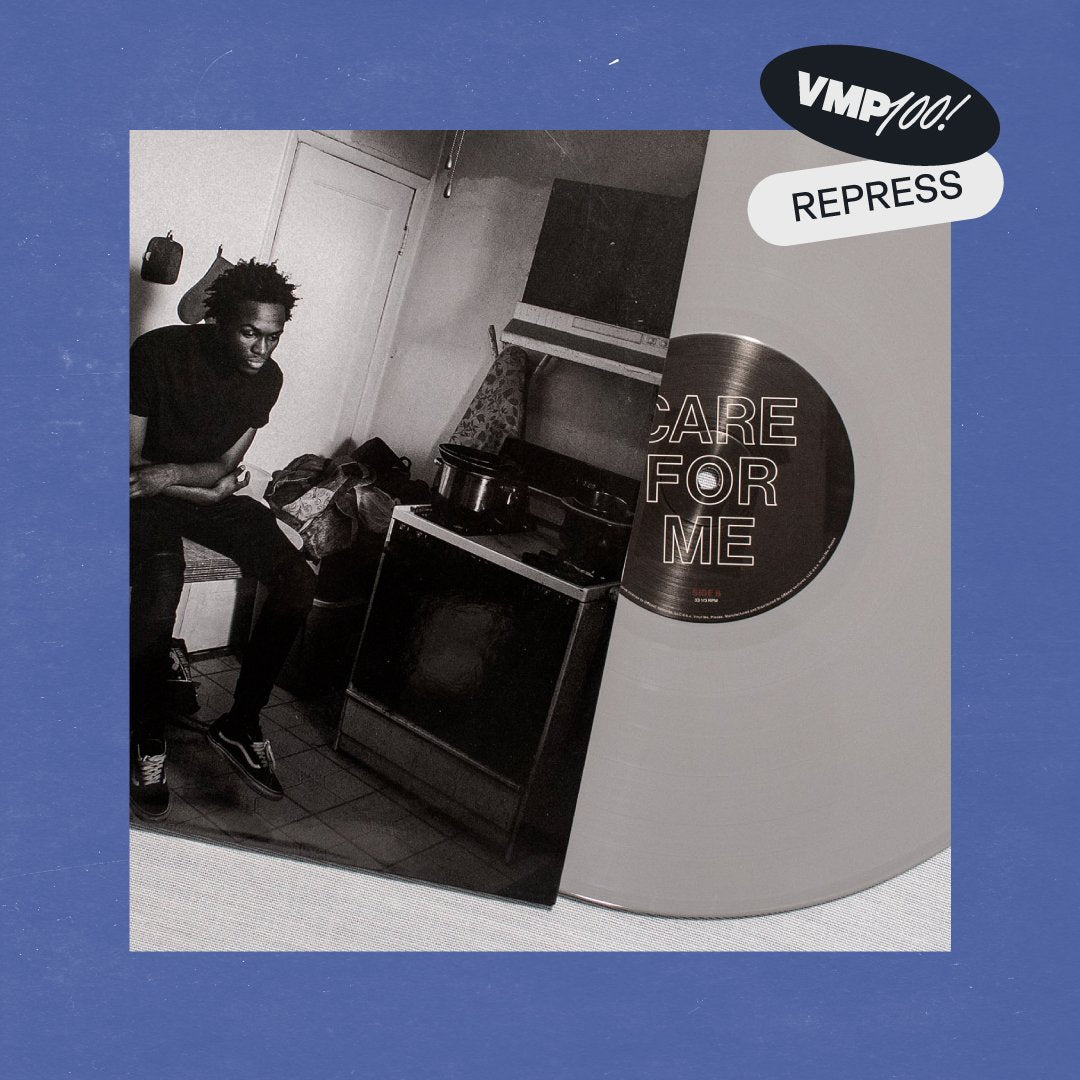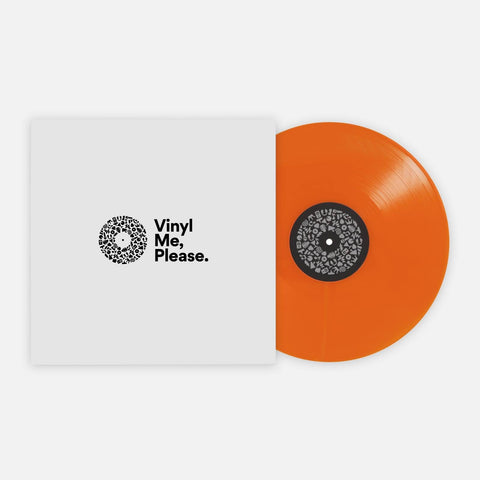Phoelix, Noname’s Secret Weapon, Breaks Down The Making Of ‘Room 25’
We Talked To Phoelix About The Collaborative Creative Process That Led To Noname’s Beautiful Sophomore Release
Hip-hop has never encountered a singular talent quite like Noname, who unspools threads of oblique images in her playful, conversational style and constructs rhyme schemes out of words folded like origami. Her exquisite new album Room 25 is a case of mid-’20s soul-searching that delves into her sexual awakening, experiences with love gained and lost and relocation to Los Angeles from her hometown of Chicago. Noname has been quick to redirect much of the praise that fans and critics are currently heaping on her in the direction of her secret weapon Phoelix, the album’s co-executive producer and primary sonic architect.
Recorded almost entirely with live instruments, Room 25 marked a collaborative effort between Noname, Phoelix (who handled bass and keys and also contributed vocals), guitarist Brian Sanborn and drummer Luke Sangerman. Their raw instrumental chops shine through in a delicate, off-kilter wash of jazz and R&B. As the album solidifies Noname’s place as a permanent hip-hop fixture on a national level, it also shines a light on Phoelix’s prodigious talents and reveals him once again to be a genuine jack-of-all-trades and vital cog positioned (alongside producers like Peter Cottontale and Cam O’bi) at the center of Chicago’s musical universe.
Phoelix, 26, grew up in a musical family in Fox Valley, a suburban pocket situated about an hour outside of Chicago. At church, his dad was the pastor and his mom was the choir director. His uncle used to play with Frank Zappa. After a standout youth basketball career, Phoelix matriculated at Olivet Nazarene University, dropped out after two years and eventually moved to Chicago, where he met Saba, and, later at one fateful show in November 2015, Noname. Countless sessions between the three of them in Saba’s basement and an Airbnb in L.A. resulted in the foundations of Noname’s Room 25 precursor Telefone and Saba’s Bucket List Project, both of which Phoelix co-executive produced.
In the past two years, Phoelix has released two solo projects, GSPL and TEMPO, and toured extensively on bass and keys with Noname, Saba, Smino, Jean Deaux, Jamila Woods and Eryn Allen Kane. But nothing he’s worked on yet has quite measured up to the haunting beauty of Room 25. We spoke with him on the phone to draw back the curtain on Room 25 and learn how the album came together through his eyes.
VMP: How did Noname decide on personnel and direction for Room 25?
Phoelix: I think after doing Telefone, and after playing with Brian [Sanborn] and eventually playing with Luke [Sangerman], myself and Noname really made a decision to work on the album with those two and utilize their musicianship and also production abilities. And of course Matt Jones, who orchestrated the strings. But I think we just took a different approach and wanted to make it more instrumental, give it a different feel and go a little deeper emotionally in the production.
Over what time period did you guys make Room 25?
We made pretty much everything in L.A. — end of February [2018] into March, and then the week in between Coachella. And then the week after that, I went back up to L.A. by myself — Noname lives in L.A. — and we took a week and basically finished the concepts for the album, the vision and direction, and then came back to Chicago and fine-tuned the little pieces that we wanted to add.
In any creative process, the last 10 percent can be somewhat excruciating. Was that true for you guys?
For me, I think the hardest part was getting started and figuring out where we wanted to go. With Luke and Brian, we’ve played live together over the past three years or so, and we just developed such a limitless chemistry as musicians. And [we were] figuring out how to hone all of that into an album — you know, one idea, one statement, being on the same page as Noname, making it one complete thought and one theme. That was the difficult part. Once we got on the same page and agreed on a certain direction, it was pretty quick from there.
How would you characterize the types of conversations you had with Noname versus the ones you had with Luke and Brian?
They were all the same. It was everybody just trying to figure out where we were all at, as people in our lives, as friends and as family, as creatives, and where we were at as musicians and writers and producers. The process of reconnecting and getting closer, rebuilding that relationship that we had on tour, and just translating that into the studio setting. And really making it all concise. It’s kind of an interesting transition, going from music kind of being routine to having to go and create something new. And it was fun and exciting. We had been wanting to do it for a while. But actually doing it was sort of a task at first, until we got into a rhythm, then it became simple. It was very organic. It’s always like that when you choose to work with friends. Our process was very raw and honest, and it felt like we were with family the entire time. It never felt like work.
For Noname, a lot of the album talks about L.A.'s affect on her. How has L.A. affected you?
Definitely. I think L.A., from my perspective, is still kind of a faraway place, and I kind of learned to think from the suburbs and [saw] Chicago as a faraway place before I moved here. And it’s that kind of experience. And me, I kind of fit with it that way, like how I was coming out to Chicago and starting to work with Saba in the beginning, even before we started working on Bucket List and Telefone. The experience of coming somewhere new and being in a new environment, something that I’m not familiar with that I’m now living in, that I’m now sleeping in all the time, is something that inspires me in that I just see things differently. The sounds, the smells, the weather, everything. The constant everyday is gonna be sunny and beautiful or whatever; it’s just different. Every environment will bring different things out of me that I’m not used to. I always appreciate that type of experience.
Noname paid for Matt Jones to orchestrate the strings on Room 25 out of her own pocket. How did you guys connect with Matt and integrate him into the project?
I think Matt Jones is one of the people who goes under the radar of Chicago and is a musical genius in terms of playing as a musician, as a composer. He’s brilliant. I’ve known Matt for a couple years. I remember there was one time at East Room, there was some jam session that a friend of mine, Justin Canavan, used to host with his band. And this was the day that I actually met Brian and Luke. I was sitting in with Justin, and Matt Jones was there, I think it might have been his birthday or something. He came up and played, and just did some ridiculous shit on the keys, and I was super blown away. I was like, “Who is this guy, he’s crazy!” I met him, and he was cool, and then Ralph Gene actually told me more about him, like, “Yeah, he arranges strings.” He was supposed to do an arrangement for Eryn Allen Kane or somebody a while ago. It ended up not happening, but he’s just infamous. I think he also did strings for PJ Morton… He’s one of the greatest alive.
It was literally like we gave him the songs without strings on them. We were like, “Yo, we need strings on these songs, can you just go crazy?” He went crazy. He’s a genius. I have the utmost respect for him as a creative mind. He’s brilliant. I can’t wait to work more with him in the future.
You didn’t have to give him a lead sheet or chords or anything?
No, there are people in the world that are able to just hear and understand things in a way that’s not like chords, but feel. And he understood the feeling we were trying to get out of the song, and he knew how to implement strings in a way that would add to it. He did an amazing job. I couldn’t have been happier with the result.
Do you remember your first time hearing the tracks with his strings?
I was in L.A., it was the day after I played a show with Smino — it was the last show of his Jupiter Jam tour — I opened in L.A., and the day after that, Noname texted me, like, “Yo, Matt sent the roughs, check Dropbox or whatever.” I listened to “Window” first, and I was like, “Oh my god! This is about to be classic!” In that moment, I knew it was gonna be a great album. And they were rough, I think they were MIDI strings at first, then he got actually players to play it; it was just ideas. I was just like, “Wow, this is so beautiful.”
What kind of growth or changes did you notice in Noname as a songwriter between Telefone and Room 25?
I think her writing, the pictures are a little more vivid now. I think she’s always been a very good illustrator as a writer in terms of painting a clear picture. Her pictures are a little bit deeper, a little bit more intricate, a little bit more precise. And I think that in two years, there’s a lot that has happened in that time, with multiple tours and just life. She’s become a lot more meticulous with where she places her words and how she says words and all the little details. And all of that pushes me to also be very concise, and I think it goes both ways, to be that precise with production and the sounds that are being used and to really carry that and become that spaceship to her — for her, I guess.
“Ace” featuring Smino and Saba is one of the fan favorites from the project. How did that song come together?
That’s the only full beat on the project. That’s a beat that I just had that I thought was cool. And Noname was like, “I love this beat, we should [get] Smino and Saba on this.” And then when it came to the studio, Elton was not rocking with it and Smino was like, “Yo, I’m not about to let this die,” and then he put his part on first. Literally, the song came about in order. He sent it back to Noname, she was like “Yo, this is hot,” then they sent it to Saba. Fatimah wouldn’t let me hear until it came out with Saba’s verse on it. I had to wait to Friday to hear. It was like, “Whoo, I’m glad that one made it,” because that was fire.
In a past interview, you called the making of “Shadow Man” from Telefone “one of the most legendary days of my life.” What special memories stand out from the making of Room 25, where you and everybody were vibrating on a higher frequency?
Making “Part of Me,” with Brian, that was an amazing moment for me in terms of being the one writing that hook and the clarity it gave me in my life. That was very impactful. It’s crazy to hear that song out. I was so happy with the rough version of that song. That was just speaking to me. that was inspiring to me. When recording, myself and Noname were making the bulk of the album and being like, “Wow, this is pretty much done,” that was a ridiculous moment just completing the album. Now we know we can do albums.
And going back to Telefone taking so long, that it took over a year to get that done, and the second time was so fast. Growing, even on the executive side, just completing projects and being able to finish things, that was very powerful. Making “Window” with Luke and Brian, that was another moment in the new studio that was like, “Wow, this is an amazing space, we really found something here, we’re really onto something here.” We had a lot of moments of confirmation, and knowing that we had the right people. And moments of creating things where we were like, “This is a reflection of the power we knew we always had.”
Header image by Jac Cabre
Danny Schwartz is a New York-based music writer. His work has appeared in Rolling Stone, GQ, and Pitchfork.
Related Articles
Join the Club!
Join Now, Starting at $36Pages







